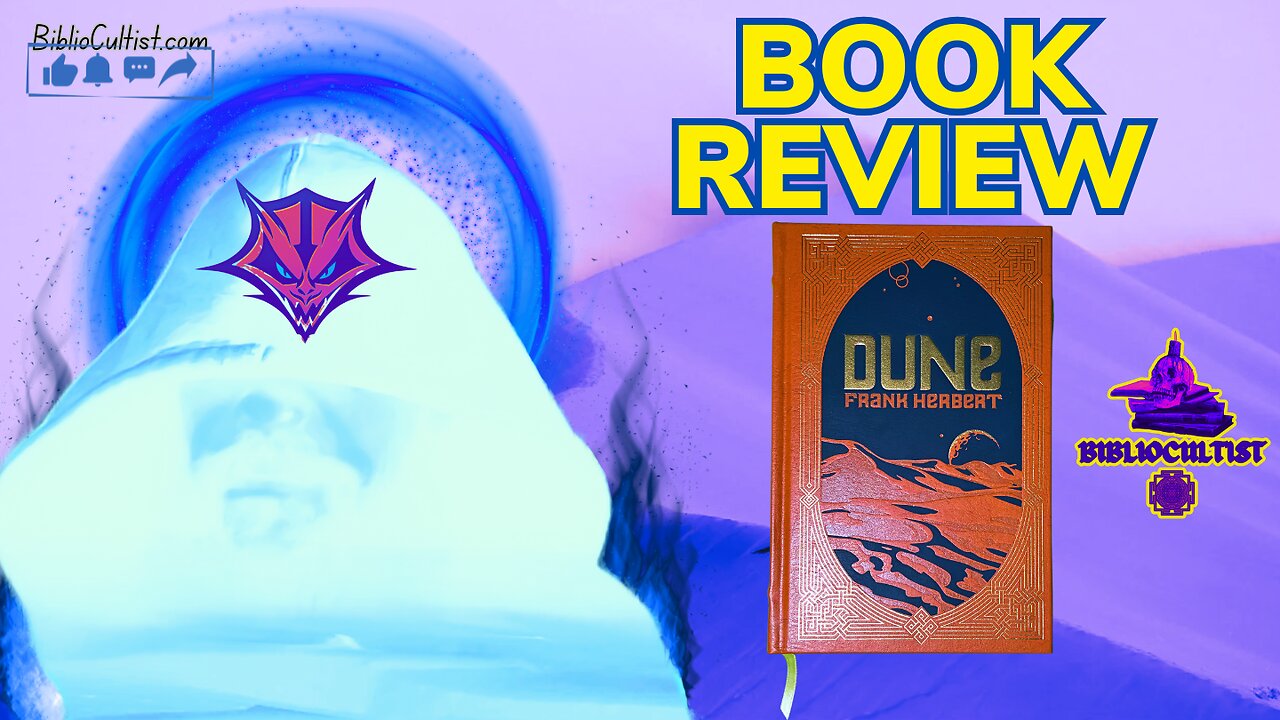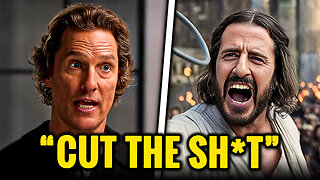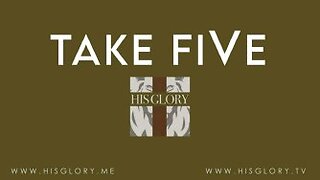Premium Only Content

Dune’s Divine Tapestry: Islam, Politics, and the Future of Humanity
*CHECK OUT MY MERCH: https://bibliocultist.printful.me/*
In this video, I delve into Frank Herbert's seminal sci-fi novel 'Dune', exploring its profound allegorical depth and intricate weaving of religious motifs. This epic saga transports us to the desert planet Arrakis, where the precious spice melange fuels interstellar travel and grants psychic abilities. Beneath the surface, however, lies a rich tapestry of philosophical and spiritual themes that resonate across belief systems. I highlight how Herbert masterfully incorporates Islamic concepts, from the desert fremen culture inspired by Arabic Bedouin tribes to the messianic undertones surrounding the central character Paul Atreides. The novel presents a future where religion is inextricably intertwined with politics, power, and human evolution, challenging us to ponder the role of faith in shaping civilizations. Through insightful analysis of key quotes, I explore the novel's spirit, touching on themes of rulership, societal structure, and the transitory nature of greatness. Herbert's unique ability to align with the reader's religious perspective, regardless of their background, is a testament to the universality of the story's core messages.
*all music and content copyright BiblioCultist.com*
#DuneAnalysis #FrankHerbert #SciFiReligion #IslamicInfluenceInDune #ScienceFictionLiterature #PhilosophyInDune #AllegoryInDune #ReligionAndPower #DuneThemes #SciFiSpirituality #MessianicNarratives #InterstellarFaith #DuneQuotes #MythologyInDune #biblio #cultist
**SHOW NOTES**
1. Frank Herbert (1920–1986) was a visionary science fiction author best known for his landmark novel *Dune*. A keen observer of human societies, Herbert infused his works with intricate explorations of religion, power, and ecology. His stories often examined how belief systems shape cultures and influence political dynamics, as seen in the Bene Gesserit sisterhood and Paul Atreides' rise to messianic leadership in *Dune*. Beyond his literary achievements, Herbert’s fascination with philosophy, environmentalism, and the sociological impact of religion stemmed from his diverse experiences as a journalist, photographer, and ecological thinker, making his work both intellectually rich and profoundly influential.
2. The medieval structure of classic fiction, rooted in epic traditions, often follows a tripartite framework: the hero’s origin and rise, the journey or quest fraught with trials, and the ultimate transformation or triumph. This structure, seen in works like *Beowulf*, *The Divine Comedy*, and *Le Morte d'Arthur*, emphasizes themes of honor, destiny, and moral conflict. These epics typically blend the personal with the universal, intertwining individual growth with broader societal struggles. Drawing from chivalric ideals and religious allegory, they reflect the values and anxieties of their time while exploring timeless human dilemmas. This enduring framework became a foundation for later storytelling, influencing countless narratives across cultures and eras.
3. Varnashrama Dharma is a divine framework designed to organize society in a way that promotes harmony, efficiency, and spiritual growth. Rooted in the idea of divine order, it assigns roles and responsibilities based on an individual’s nature (varna) and stage of life (ashrama), ensuring that everyone contributes to the collective good while progressing on their spiritual path. By aligning personal duties (dharma) with societal needs, this system fosters balance, minimizes conflict, and encourages self-realization.
4. The word "sardonic" originates from the Greek phrase *sardonios gelos*, meaning "bitter or scornful laughter," and is linked to the ancient Sardinian plant *Ranunculus sceleratus*, which was said to cause grimaces resembling a mocking smile when ingested. Over time, it evolved to describe a tone or expression that conveys bitter mockery, disdain, or cynical humor. Unlike genuine laughter, the sardonic is laced with derision, often directed at life’s absurdities or misfortunes, making it a hallmark of dark wit or biting satire.
5. In the *Dune* universe, religions play a central role in shaping culture and politics, often blending real-world traditions with fictional elements. The *Orange Catholic Bible*, a fusion of Christianity, Islam, and other faiths, serves as the dominant religious text, emphasizing humanity's unity and self-reliance after the Butlerian Jihad against thinking machines. The *Bene Gesserit* maintain their own secretive scriptures, using them to manipulate prophecy and guide evolution, while the Fremen follow a messianic religion rooted in ecological survival, influenced by Zensunni beliefs—a mix of Zen Buddhism and Sunni Islam. Other groups, like the Spacing Guild, revere mathematical precision almost as a divine principle, tied to their use of spice for space travel.
-
 10:27
10:27
Adam Does Movies
21 hours ago $0.43 earnedShelby Oaks - Movie Review
9.42K7 -
 6:08
6:08
Blackstone Griddles
14 hours agoAlmost Famous French Toast on the Blackstone Camping Griddle
11.9K1 -
 2:04:00
2:04:00
BEK TV
1 day agoTrent Loos in the Morning - 10/23/2025
9.76K1 -
 LIVE
LIVE
The Bubba Army
23 hours agoImmigrant Trucker KILLS Again! - Bubba the Love Sponge® Show | 10/23/25
1,285 watching -
 LIVE
LIVE
Side Scrollers Podcast
3 days ago🔴FIRST EVER RUMBLE SUB-A-THON🔴DAY 3🔴WAKE YOUR ASS UP!
1,078 watching -
 19:16
19:16
Jasmin Laine
18 hours agoCBC Gets FACT-CHECKED By Guest—Carney BEGS Poilievre For Help
24.1K12 -
 8:50
8:50
The Shannon Joy Show
15 hours agoBREAKTHROUGH Cancer Treatments With Dr. Makis
11.5K3 -
 9:10
9:10
Faith Frontline
14 hours agoMatthew McConaughey Just Said What No Celebrity Dares to About Jesus
14K2 -
 27:03
27:03
Take FiVe - His Glory
1 day agoEp 2112: Sam Anthony: How Citizen Journalism is Replacing Legacy Media | Take Five
16.4K2 -
 10:01
10:01
Breaking Points
20 hours agoKJP GASLIGHTS On Biden's Age In BONKERS Book Tour
12.8K2